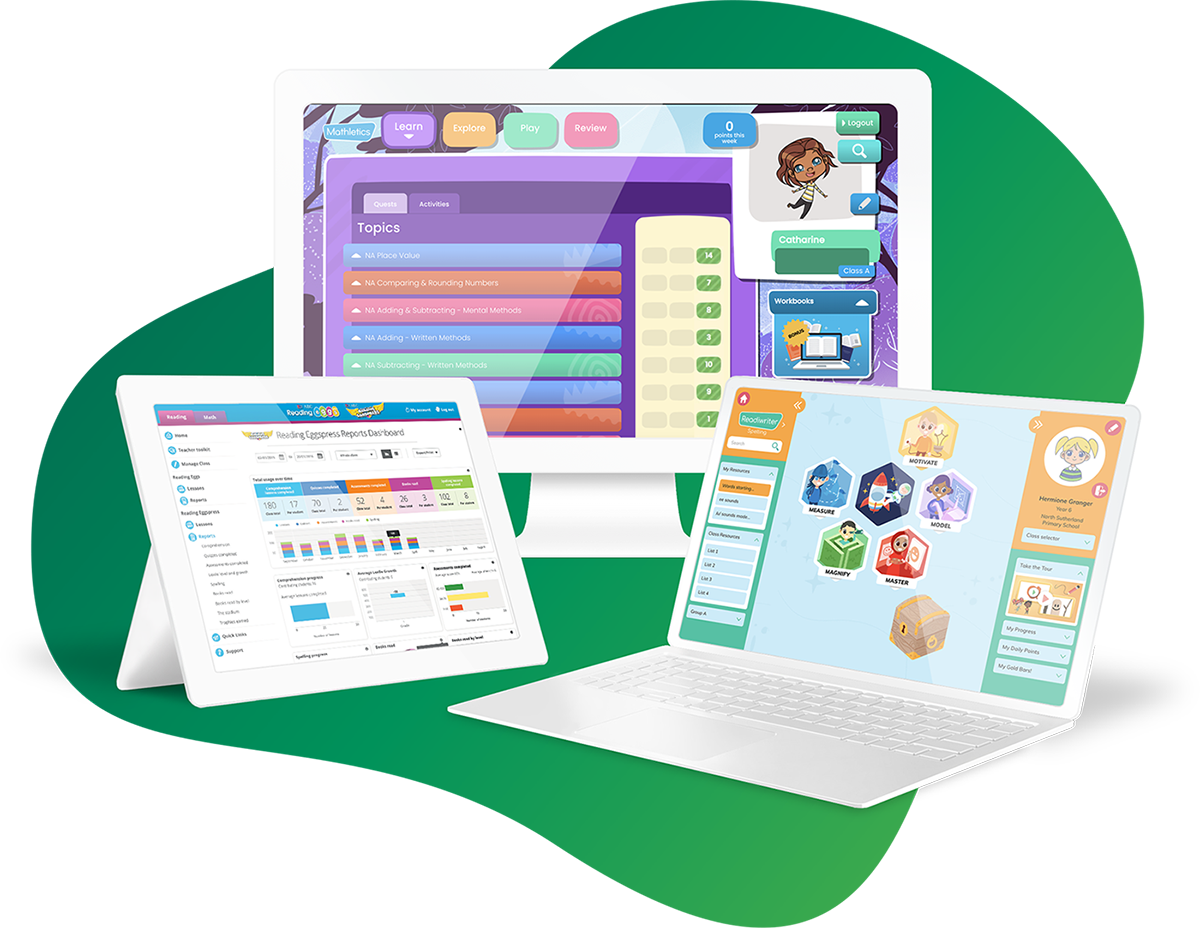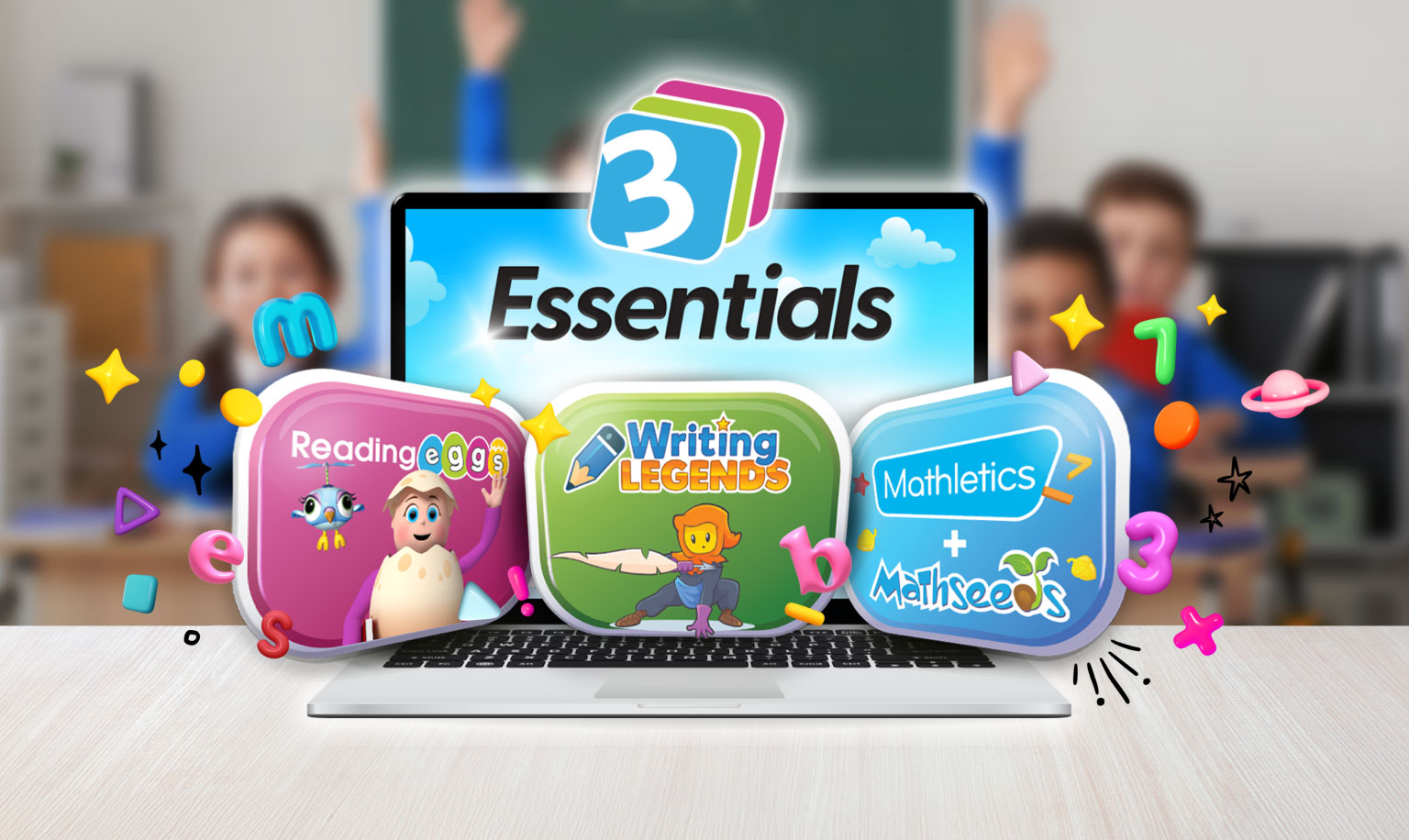
It’s tempting just to wind down and sign off as the year closes, but the last few weeks of school can provide precious time for curriculum catch up, revision and consolidation.
So how can we maximise the last few weeks of the school year?
Before we run to panic stations and try to hit every button and tick every box, let’s acknowledge a simple truth: You’re not going to be able to do everything.
However, you can commit to doing a few things well. Here’s how you can identify what you should spend your time on and how you can play curriculum catch-up like a winner.
Identify gaps and prioritise needs
Over the year you’ll have acquired data – lots of data – that shows you where your learners’ strengths and weaknesses are. This is where you’ll find key gaps in learning.
The trick to prioritising these gaps is simple: ask the next years’ teacher what the ‘must-haves’ are for their soon-to-be students. They’ll be able to tell you what those crucial elements of learning are and give them a heads-up on what subjects or topics they’ll need to revise.
Helpful questions to help you identify gaps and prioritise needs:
- What are the priority areas in the curriculum?
- What areas have been neglected throughout the year?
- What content and skills will the students need most at the start of next year?
- Are there any students that need more support?
Make a plan
Plans may have come and gone as the year progressed, but it’s an essential part of curriculum catch-up.
A plan gives you a visual or written guide of what’s going on – where you’re at, what your challenges are, how you plan to overcome them and what the goal is. Without a plan, you’re just doing stuff in the hopes that everything will come together.
Having a plan that you can articulate is also empowering to your students. Involve them in the planning process and allow them to contribute their own suggestions. Tell them the plan – the why, what, when and how. Keep the plan on display to maintain focus. This a great growth mindset moment!
Helpful questions to ask yourself when making a plan:
- How many class hours do I have left?
- How will I meet the diverse needs of advanced and struggling learners?
- Can I combine subject matter into a single project?
- What resources do I have?
Focus on the mastery of fundamental skills
Students can’t build on what they don’t know and aren’t confident with. It can feel like treading old ground or like the time could be better spent introducing more complex or advanced parts of a topic – but without foundational understanding, it’s not going to be complete learning.
Building mastery comes down to three things: practice, practice, practice. As the clock runs down on the school year, the challenge isn’t finding time to assign mastery activities – it’s all about making them more engaging.
Look for creative ways to practise the basic skills. Play games, set up personal learning goals, compete in teams, use whole class challenges.
This doesn’t have to come at the expense of deep and connected understanding. Remember to provide opportunities for lots of talking and sharing; thinking aloud is critical for making connections within and across concepts. Let the students explain their thinking through pair and team activities.
Helpful questions to ask yourself around fundamentals:
- What foundational skills need to be mastered?
- Do I have master activities and resources at hand?
- When and how can I monitor students’ mastery and fluency?
- How can I support my students in setting achievable learning goals?
Consider creative learning opportunities you might have missed
The last weeks of school may be the perfect opportunity to focus in on some of the areas that you glossed over throughout the year because there wasn’t time to do them justice.
With a slightly more relaxed schedule, the end of the year is a perfect time to get creative – here are a few examples of what you can do:
– let students explore, experiment and focus on making strong connections on their own
– set more challenging tasks that involve higher-order learning, critical thinking or problem-solving skills
– indulge in creative subject areas or soft skills to bolster other areas of learning
Look for cross-curricular learning opportunities
Two birds; one stone. Integrating multiple areas of study into one project is a great way to save time and create rich learning experiences.
Your science topic may lend itself to a rich writing or debating topic. Explore subject-specific vocabulary, master the structures and language of scientific reports, create data displays and find the balance between factual integrity and persuasive licence.
Does your social studies topic lend itself to a cross-curricular project? A study of countries of the world can lend itself to a ‘Tourism Fair’ with students working collaboratively to research a country and set up a stall – making signs, writing recipes, calculating currency conversions and delivering persuasive speeches.
Finding cross-curriculum opportunities can be challenging – it takes more time and a splash of creativity.
Here’s how you can quickly figure out cross-curricular opportunities:
- Consider all the elements that can go into a single project
- Investigate common threads between subjects
- Ask the students to contribute their ideas
- Collaborate with teachers in other classes
Make use of all your available resources
People are the greatest resource in any school, so think about how you can collaborate with your fellows. A great example is combining classes to allow peer teaching opportunities.
Now is a good time to revisit your school supply room. Those straws that were accidentally ordered would be a great resource for building 3D models. Old newspapers and magazines could make for a fabulous resource for a word hunt.
Plus there are loads of digital resources available online. But be discerning – not all that glitters is gold. Filling the classroom with ‘busy work’ will not bridge gaps. Look for resources that support you in building foundational skills, exploring creative connections and bridging the curriculum gap.
Plan to prevent gaps (next year)
There’s only one way to truly win curriculum catch-up: don’t play it. To avoid the gaps next year, try these evidence-based strategies:
Interleaved practice
Interleaved practice is a curriculum strategy where content is distributed across the school year rather than covered in a single exhaustive unit of work. This is the opposite of blocked or massed practice. Consider changing your program next year and incorporating an interleaved approach.
Spaced practice
Spaced practice is the regular revisiting of content throughout the year. Ebbinghaus’s forgetting curve reminds us that knowledge and skills can be quickly forgotten without revision after a day, a week and a month. Factor this revision into your program next year.
Fast feedback
Effective monitoring of student achievement is critical – not just summatively, but more importantly, formatively. Providing fast feedback loops ensures that students have understood the concepts and are applying them correctly. Don’t wait for an end of unit or, worse still, end of year test. Be engaged and active in monitoring learning and providing support, scaffolding and enriching in a timely manner.
Gradual release
A simple strategy to help avoid creating the holes and misconceptions is the gradual release approach. ‘I do, we do, you do’ is a great strategy for clear modelling, guided practice and fast feedback.
In summary: To get your students caught up with outstanding curriculum requirements, you should:
- Identify the gaps and prioritise the needs
- Make a plan
- Focus on the fundamentals
- Consider the creative learning opportunities you may have missed
- Look for cross-curricular opportunities to combine teaching
- Make the most of your available resources
- Plan to prevent gaps (next year)

Fill the learning gaps with our engaging mathematics and literacy programs
Sources
Why the curriculum is important – Classcraft.com
A different way to organise the school curriculum – Teachermagazine.com.au
Playing Curriculum Catch Up – Weareteachers.com
How to stay caught up with the curriculum – Edutopia.org
25 years of end of year experience – Kim Hawgood, 3P Learning Education Specialist









